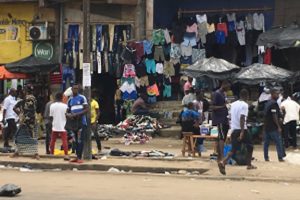It should be taken as unacceptable everywhere that Africa loses every year over 10% of its domestic production because its people and especially its children do not get enough food in quality or quality to eat.
It should be taken as unacceptable everywhere that 58 million African children have stunted growth, a condition that cannot be reversed. This is what waste – true waste – really is.
The most unacceptable waste on this earth is the waste of human potential. And yet potential cannot be eaten or used to drive generators or trucks. It is not electricity or energy or water, but the lack of it means the lack of all these things.
A bridge, a dam, a road and a truck can all be repaired, but stunted growth, brain function, a body twisted before it can grow, cannot. Stunting does not hit headlines as do terrorist incidents, car crashes and bomb damage, but the effects are exactly the same.
When children are, through regular malnourishment and malnutrition, too short for their age, the impact is devastating – for them and their families, their communities, their countries.
The African Development Bank’s President Adesina refers to this as ‘grey matter infrastructure’ and wants investors to invest in grey matter infrastructure for Africans in the same way as they may invest in infrastructure for growth.
Another area in which potential is wasted every day is in differential treatment according to gender.
This is not about sexual politics, it’s about equal and fair access to financing, to new technologies and processes in agriculture, to new business services, processes and applications. In short, to knowledge and its capacity to realise potential and save it from being destroyed.
Hundreds of millions of dollars of potential income and turnover are lost because women are still not seen as worthy recipients of funding for new enterprises.
Women work nearly two-thirds of the world’s working hours, produce half of the world’s food, and form a majority of the farmers in developing countries, yet earn only 10 % of the world’s income.
Female entrepreneurs use approximately 92 cents of each dollar of extra income on their children’s health and education. By investing in and empowering a woman, you help to support a family and create a viable community.
Understanding just this fact will release significantly more economic opportunity for inclusive growth in Africa.



